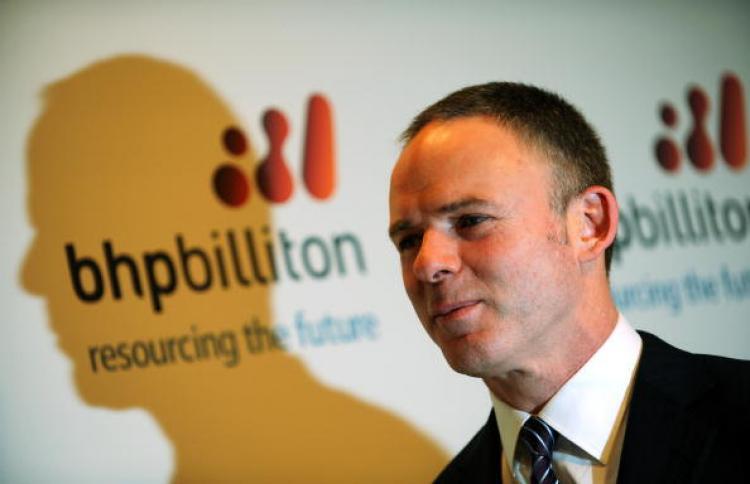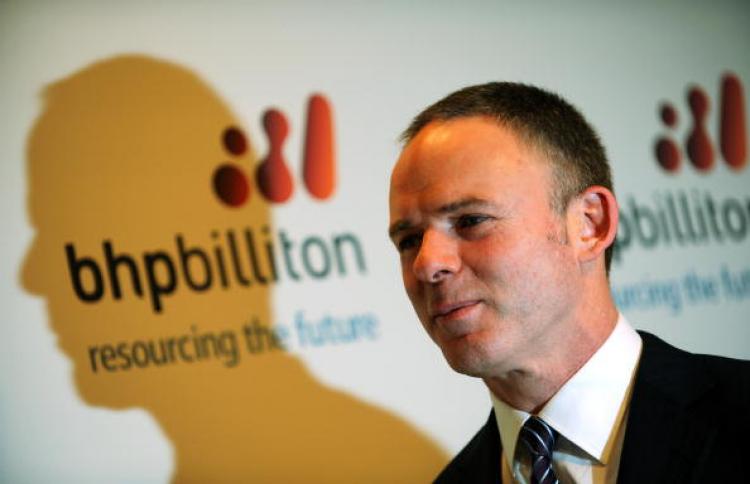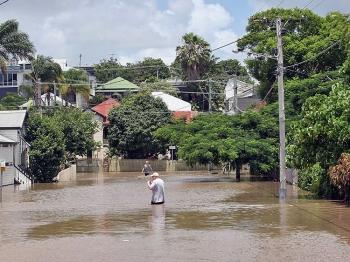BHP Chief Executive Calls for Price on Carbon
Marius Kloppers, the chief executive of mining giant BHP Billiton, has called for a price on carbon.

Chief Executive Officer of BHP Billiton, Marius Kloppers, in London on Aug. 25, 2010. Adrian Dennis/AFP/Getty Images
|Updated:





